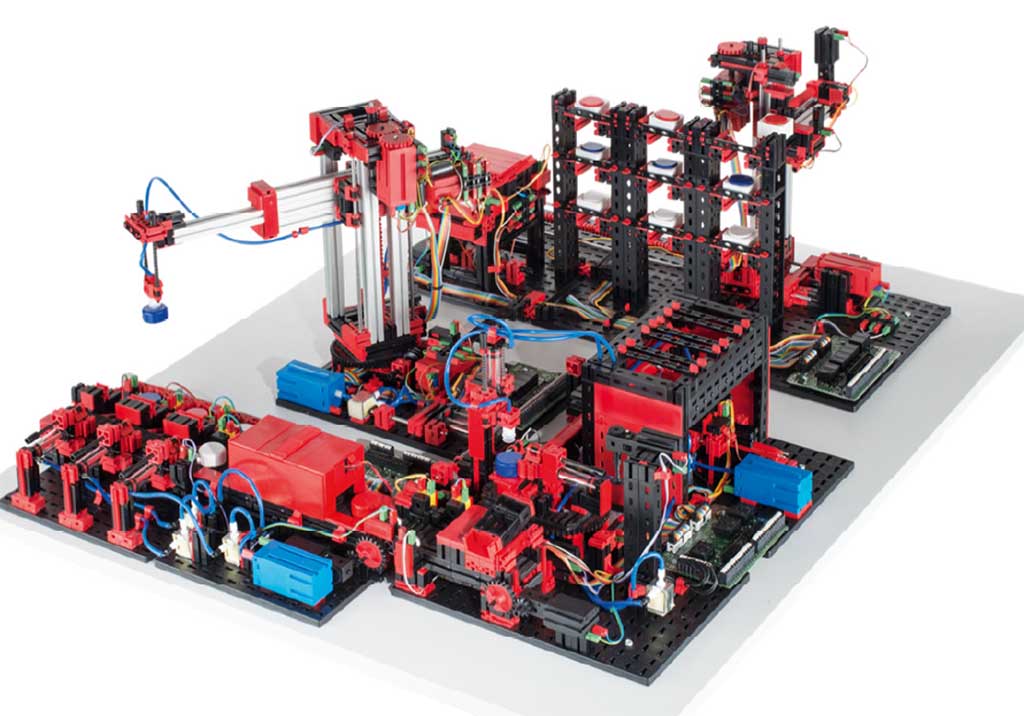In the age of Industry 4.0, digitalization is a key factor for the development of future projects and innovative plants. In particular, the use of digital twins can offer new perspectives in the development of PLC software, such as the possibility of virtual commissioning.
Tanguy Guarinoni is studying engineering at the Haute École de la Province de Liège in Belgium. As part of his master’s thesis at Quality Automation, he created a digital twin of our Fischertechnik model to explore this methodology and show interest in future applications of this method.
A Fischertechnik factory simulation served as a model for the digital twin. It consists of the models sorting line with color recognition, multi-machining station with kiln, automated high-bay warehouse and a vacuum suction gripper. With these stations, a closed material cycle is possible. The workpieces are retrieved from the high-bay warehouse, processed in the machining station, then sorted by color in the sorting system, and then returned to the high-bay warehouse.
To create a digital twin, the CAD files of the factory were first needed. These were used to develop the twin with the Siemens program CAD/CAM system NX. For each element, a so-called meshing had to be defined, as well as the freedom of movement, speed and other important dimensions. In addition, all existing sensors were also meshed.
The next step was the virtual commissioning of the digital twin, which was carried out with a simulated PLC. In this way, not only the programming of the controller but also the correct functionalities of the digital twin could be validated.
The master thesis also included a direct comparison of the two systems. Of the model consisting of hardware and its purely virtual twin. The results of this project are quite interesting and give us a lot of insight into the possibilities of virtual commissioning. Due to digitalization and the continuous increase in decentralized work, simulations and virtual twins will play an increasingly important role in the future.
